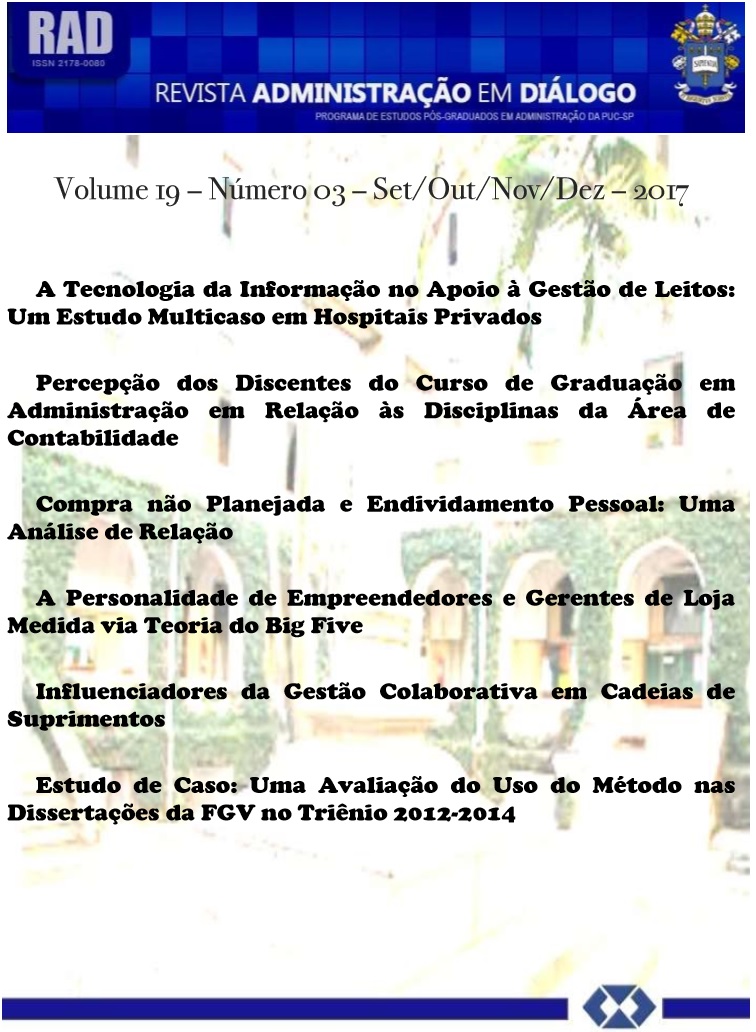Influenciadores da Gestão Colaborativa em Cadeias de Suprimentos
DOI:
https://doi.org/10.23925/2178-0080.2017v19i3.32813Palavras-chave:
Gestão Colaborativa, Cadeia de Suprimentos, PerformanceResumo
A gestão colaborativa em cadeia de suprimentos tem se mostrado um caminho para as organizações melhorem suas relações de forma a obter melhores resultados em seus negócios. Pesquisas demonstram ser este modelo de gestão relativamente complexo por envolver diferentes interesses das organizações, no entanto, relatam avanços, como o fato de obterem novos conhecimentos capazes de contribuir com os resultados. Nesta linha é intenção deste estudo, por meio de uma discussão literária a respeito do tema, entender quais são os influenciadores que contribuem ou não para a colaboração entre as organizações. Consequentemente, o estudo relata estes influenciadores discutindo-os como se relacionam com a gestão, sinalizando temas que podem ser melhor estudados na prática.
Downloads
Publicado
Como Citar
Edição
Seção
Licença

Este obra está licenciado com uma Licença Creative Commons Atribuição 4.0 Internacional.







